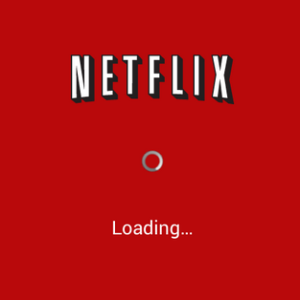The line between a “principled change of views” and a “craven flip-flop” is a fine one. But if there were a land-speed record for changing one’s mind, Netflix would have just won it.
A mere four days into the new net neutrality world order it helped to usher in, Netflix was already expressing doubts about the regnant Title II canon. Twitter was agog much of Wednesday with reporters politely noting the absurdity. “Can’t believe that @netflix, the poster child for #Title II, is now saying it really didn’t mean it. WTF,” remarked one journalist.
It’s not an exaggeration to say that Netflix was one of the chief evangelists for an exhaustive net neutrality decree. One of the watershed moments in the debate leading up to the FCC’s vote last Thursday was Netflix’s fervent claim that the strongest possible rules were needed to prevent Internet providers from imposing “online tolls” or discriminating against the video giant’s traffic. With Google sitting out this round, net neutrality activists needed a corporate crusader. They found one in Netflix.
Of course, that inflammatory charge was never actually borne out by the facts. It turns out that Netflix (and its partner, Cogent) was slowing down its own traffic with spurious routing decisions, seemingly tailor-made to create the spectacle it needed to galvanize the faithful. The gambit worked. Disingenuous or not, there’s no disputing that it greatly influenced the outcome, ultimately leading to the passage of the most onerous form of net neutrality rules.
And this isn’t the only case where Netflix is sitting comfortably on both sides of the issue. The company recently announced a new initiative in Australia where one ISP will exempt Netflix traffic from its data limits. That practice — called “zero rating” — isn’t unusual, especially in the developing world, but it raises plenty of hackles among net neutrality disciples.
You’d think it would be easy to see the value of new business models that allow corporate sponsors to subsidize consumers’ data use. But apparently it’s not. In fact, this kind of deal is the antithesis of the “all traffic is equal” approach to net neutrality that Netflix had anointed. And its prohibition is a predictable consequence of the very rules Netflix has been fighting for — or at least was, until this week — here in the US.
The real joke is that Netflix was never a true believer. It adopted the mantle of Title II evangelist to further its finances, not to crusade for progressive policy goals.
Its convenient change of heart on net neutrality, and its embrace of zero-rating in Australia while opposing the same here in the US, simply reveal that Netflix was a false prophet, pursuing its self-interest and focused on the shareholder bottom line.
That’s as it should be, of course. The only shocking thing is that the FCC and its flock of net neutrality acolytes never realized they were being played.

